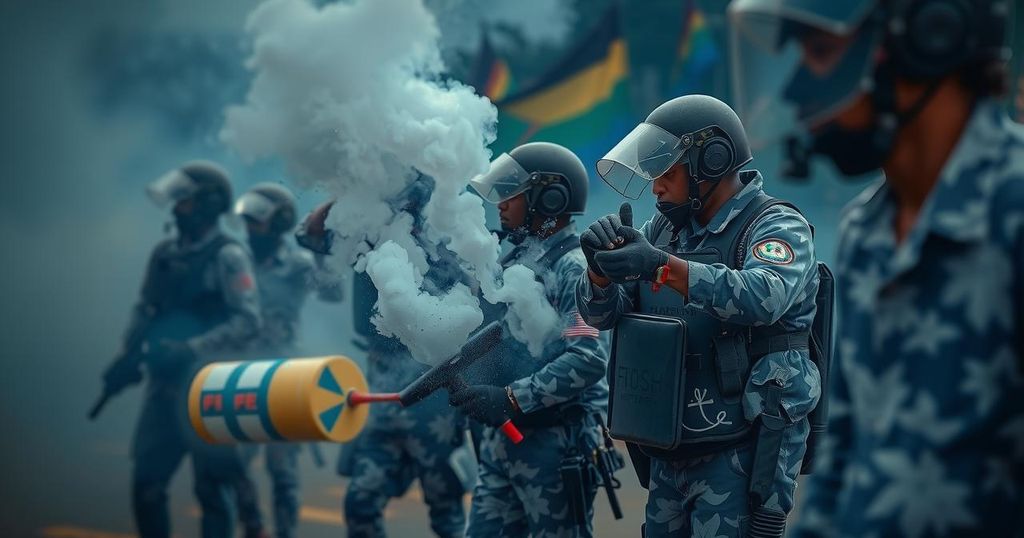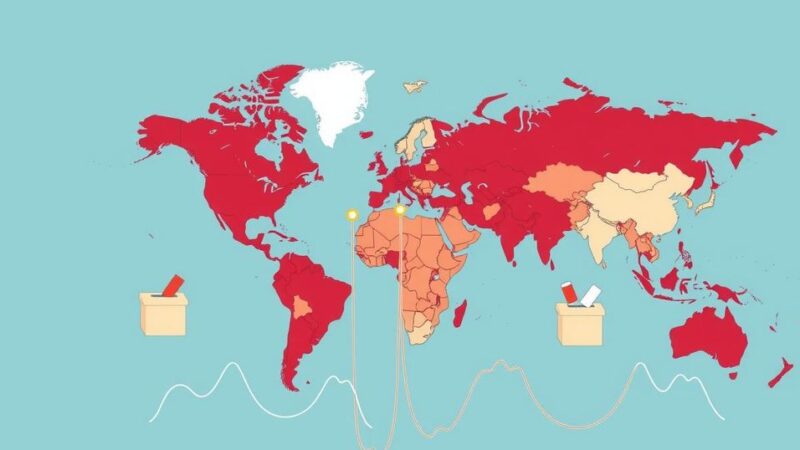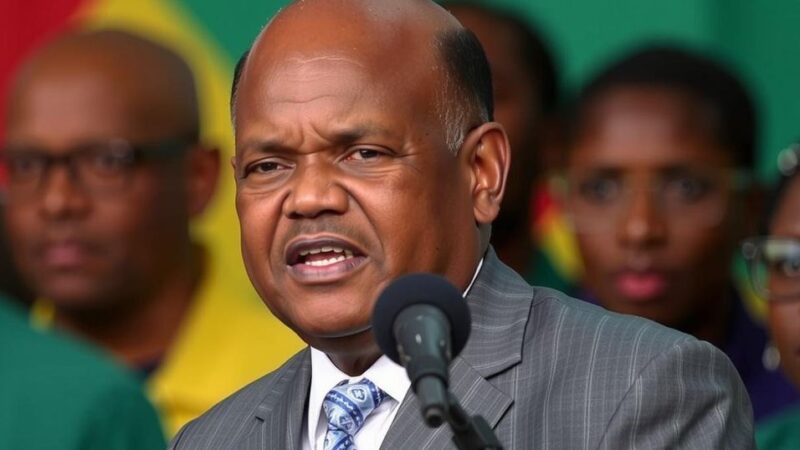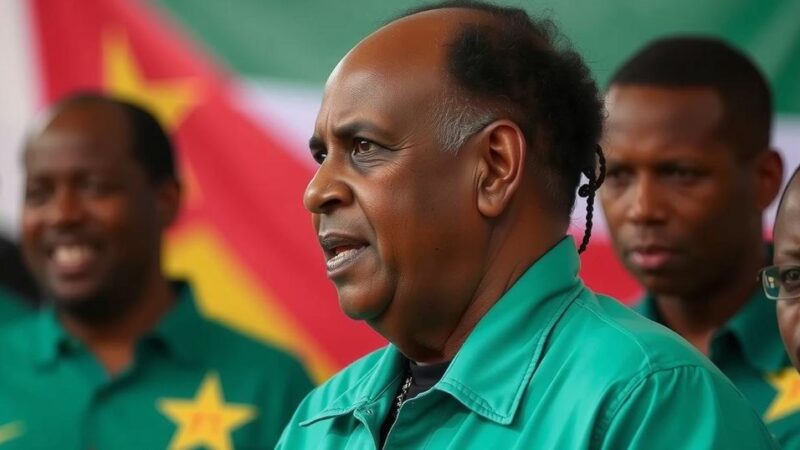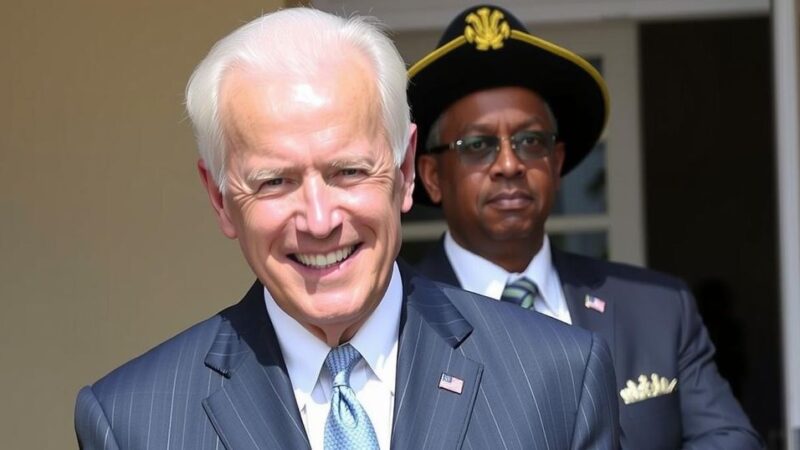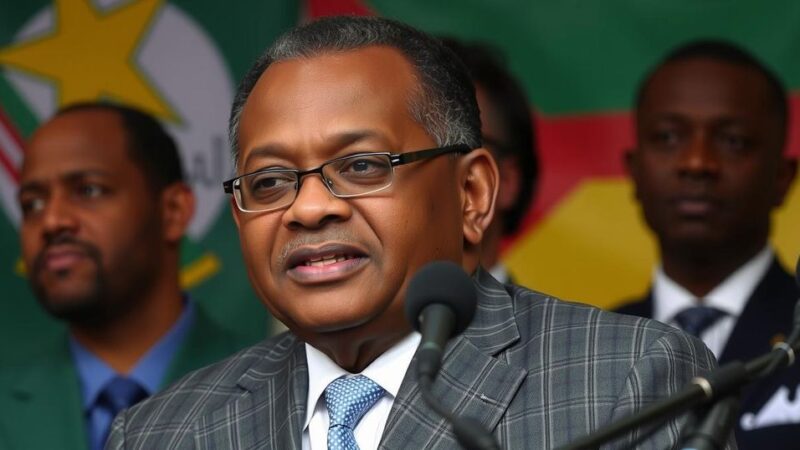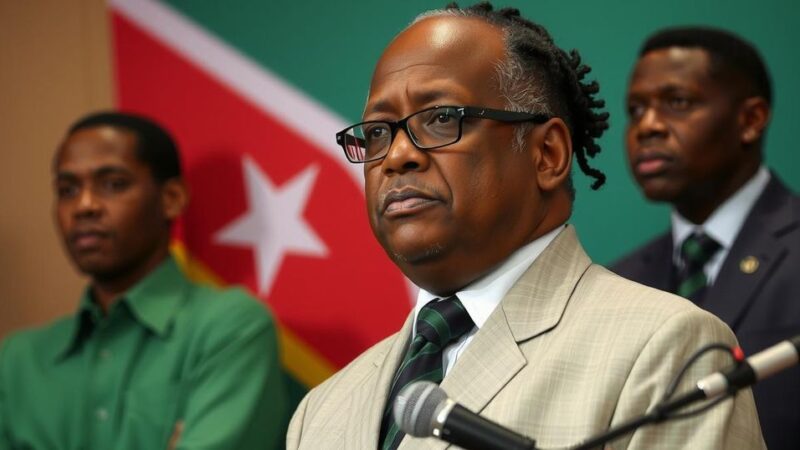Protests erupted in Mozambique’s capital, Maputo, following allegations of electoral fraud in the October 9 elections, which resulted in the Frelimo party extending its rule. Police employed tear gas to disperse demonstrators supporting opposition leader Venancio Mondlane, who claims victory in the polls. Concerns over human rights abuses have arisen amid increasing violence and fatalities during protests as the country enters a potentially transformative political period.
Mozambique has witnessed significant civil unrest following the elections held on October 9, in which the ruling Frelimo party claimed victory, maintaining its dominance for nearly half a century. Protests erupted in the capital city, Maputo, as citizens voiced allegations of election misconduct, leading to police action that included the deployment of tear gas to disperse demonstrators. These protests represent the largest public opposition to the Frelimo party amidst claims of electoral fraud and suppression of dissent. The demonstration, which took place on Thursday, was primarily comprised of young men who expressed their support for opposition leader Venancio Mondlane. Mondlane, who asserts that he rightfully won the election, had called for protests throughout the week. As the protests escalated towards the city center, law enforcement attempted to control the crowd with tear gas, despite having stated that peaceful protests would be tolerated. In a statement to AFP from an undisclosed location, Mondlane characterized the situation in Mozambique as a critical moment, remarking, “I feel that there is a revolutionary atmosphere… that shows that we are on the verge of a unique historical and political transition in the country.” Furthermore, the Mozambique Bar Association has cautioned that the heightened police presence and aggressive crowd control tactics could lead to severe violence. Reports from Amnesty International have confirmed that at least 20 protestors have lost their lives since the elections, with local NGOs estimating the death toll to be as high as 24. In response to the ongoing unrest, the Defense Minister indicated a potential military intervention to safeguard state interests. The current political climate is increasingly tense, especially as President Filipe Nyusi is poised to exit office early next year, culminating his second term. His successor, Daniel Chapo, has been declared the presidential victor with 71 percent of the vote, according to the National Electoral Commission. Meanwhile, Mondlane is pursuing legal action for a recount and has indicated a willingness to form a coalition government. The government has restricted internet access nationwide, perceived as a means to inhibit public dissent and protests, as voiced by Human Rights Watch. UN High Commissioner for Human Rights Volker Turk has emphasized the need for the police to manage protests according to international human rights standards. As the situation develops, the Southern African Development Community is convening an extraordinary summit to address the unrest, while South Africa has temporarily closed its border with Mozambique, reflecting the regional concerns over safety and stability in the area.
The political scenario in Mozambique is marked by the longstanding dominance of the Frelimo party since it came to power post-independence in 1975. The recent elections raised serious allegations of fraud and misconduct, prompting widespread protests and a crackdown by state forces. The unrest has escalated to the point where these protests are now characterized by violence and police retaliation, leading to fatalities and an atmosphere of fear among the populace. The imminent change in leadership, with President Nyusi’s approaching departure, adds another layer of complexity to this already volatile situation, heightening tensions between the government and opposition factions.
In conclusion, the recent protests in Mozambique reflect a critical juncture in the nation’s political landscape, encapsulated by widespread allegations of electoral fraud and heavy-handed police responses. The situation remains precarious, with international bodies expressing concern over human rights practices and calls for dialogue amidst governmental restrictions on freedom of expression. As Mozambique confronts these challenges, the potential for significant political change looms, making the coming weeks essential for the nation’s democratic future.
Original Source: www.aljazeera.com

